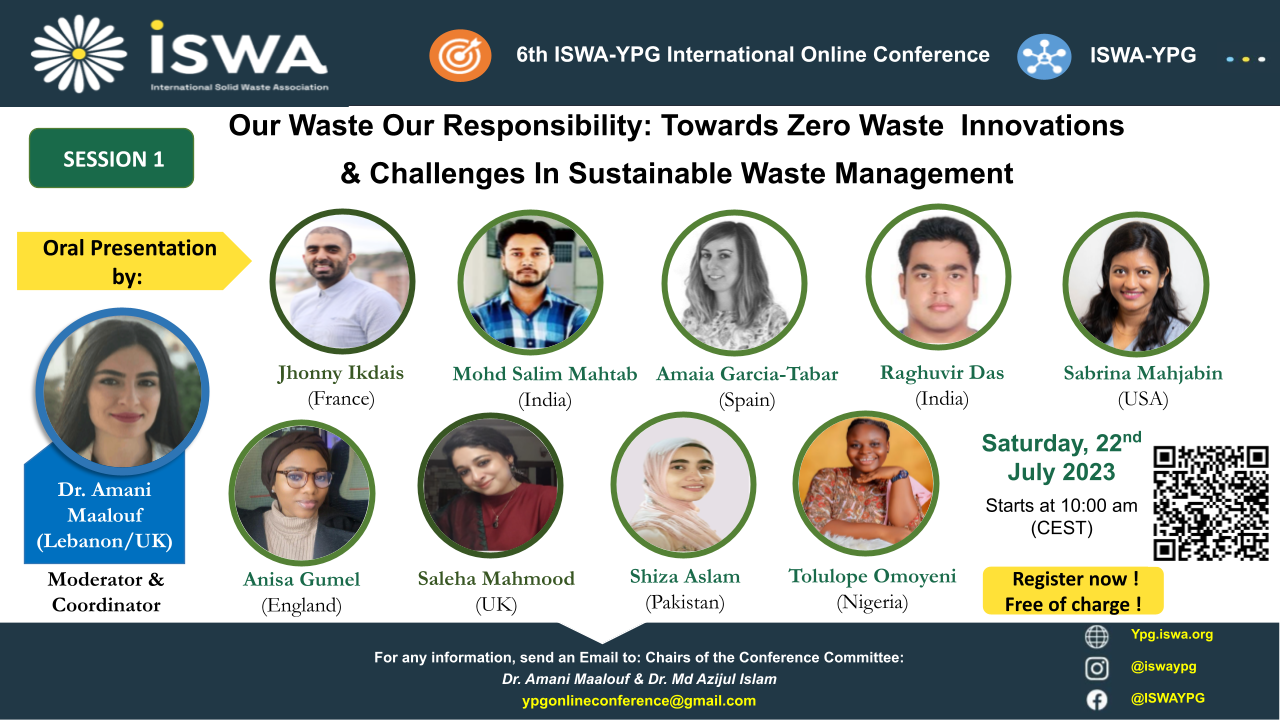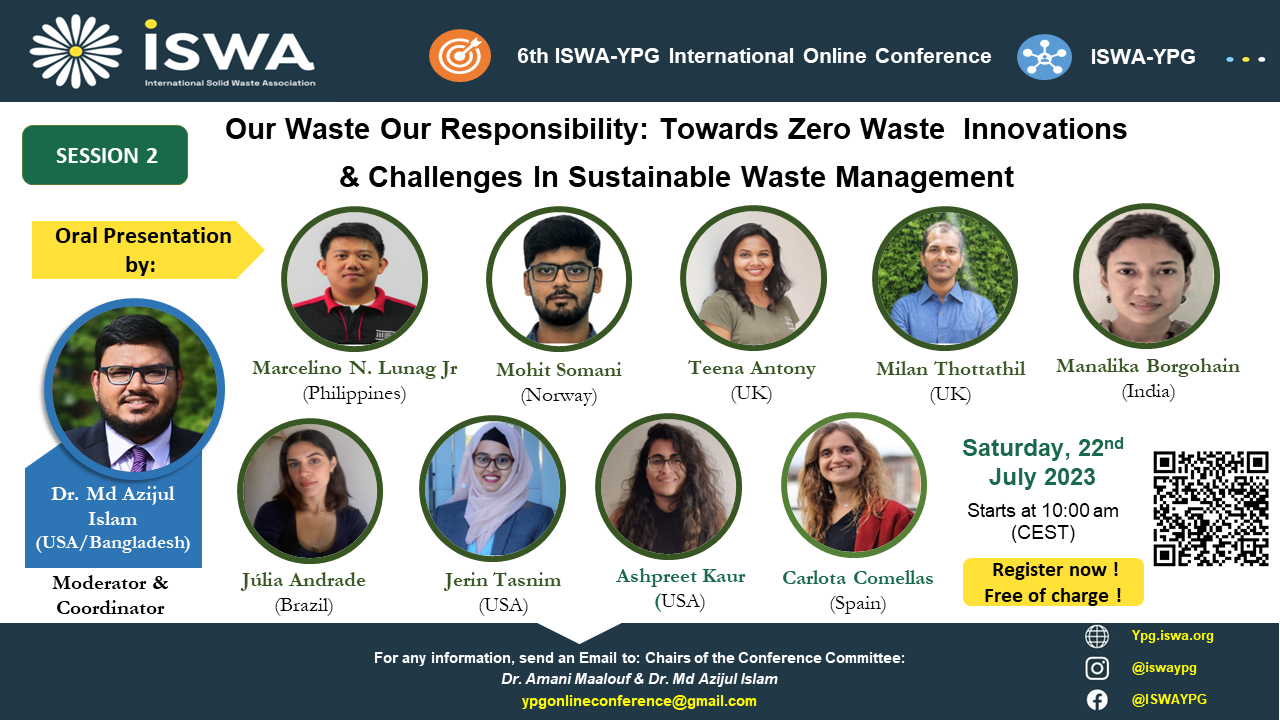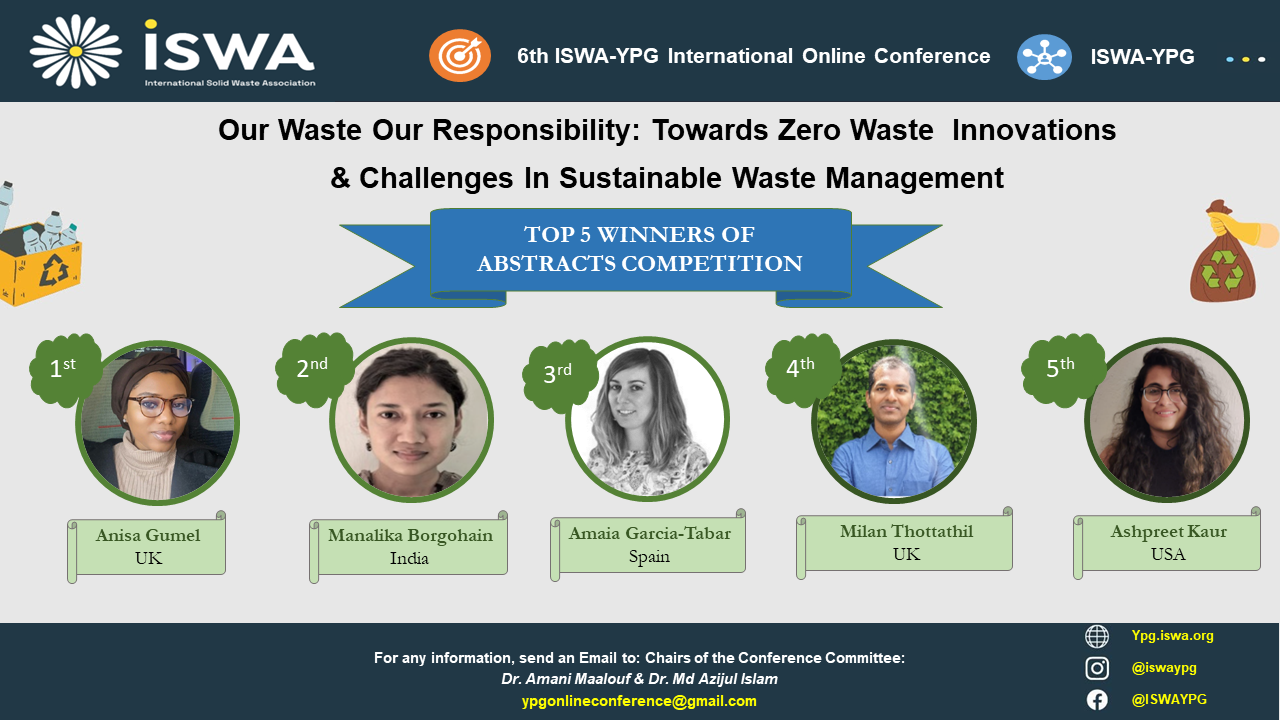A colleague in the Top 3 young professionals in waste management
Our colleague Amaia García Tabar tells us about the project with which she was in the TOP 3 winners during the 6th International Solid Waste Association (ISWA) Young Professional Group (YPG) International Online Conference on waste management that took place at the end of July.
In line with the theme of the edition: “Our Waste, Our Responsibility – Towards ZeroWaste. Innovation and Challenges in Sustainable Development”, Amaia presented how, through composting in an industrial plant, the stabilisation conditions of digestate from an anaerobic digestion plant can be optimised.
Given the energy needs of today’s world and the existing boom in green energy, there is a recent trend towards the management of organic waste through anaerobic digestion. Anaerobic digestion (AD) is a biological process widely used as a dedicated technology to convert various organic wastes into bioenergy. In addition to bioenergy production, AD produces, as a by-product of the process, large quantities of a solid known as digestate.
Traditionally, this digestate has been used directly in agricultural applications without any pre-treatment, posing potential health and environmental risks. Despite its good fertiliser properties, the direct application of this by-product may present some drawbacks. These drawbacks lead to the recommendation of treatment or stabilisation prior to land application. Composting is considered a good option for the stabilisation of digestate, as it offers a sustainable option for the production of nutrient-rich and pathogen-free organic fertilisers, while reducing the storage volume and completing the nutrient and organic matter cycle.
The study carried out by Amaia Garcia-Tabar, Angel Luengos Coello and Ander Pilar Leguina from the Waste and Resource Management team and in collaboration with Mikel Gaminde Aguirre from Garbiker S.A. identifies, through in-plant trials, the mixing ratios, in-plant handling needs and the optimal fermentation and maturation times for the aerobic stabilisation process to produce a top quality compost, marketable as a fertiliser according to European Standards (RD 506/2013).
As a conclusion of the study, a 3:1 mixing ratio (structurant:digestate), the choice of a good structurant and a good mixing process are recommended for the plant operation. These parameters are of crucial importance, as they determine the final product. Therefore, this final product, high quality compost, would be suitable for marketing in Europe.
The ISWA YPG Online Conference is the leading international conference for young professionals on waste management. It aims to address the promotion of circular economy principles and focuses on the participation of young people committed to research and innovation towards sustainable solid waste management. In addition to Amaia, two other colleagues from the waste team, Carlota Comellas Velasco and Jhonny Ikdais, were selected along with 15 other young people to present their ideas and experiences around the theme of the edition. You can watch the full recording of the event here.










